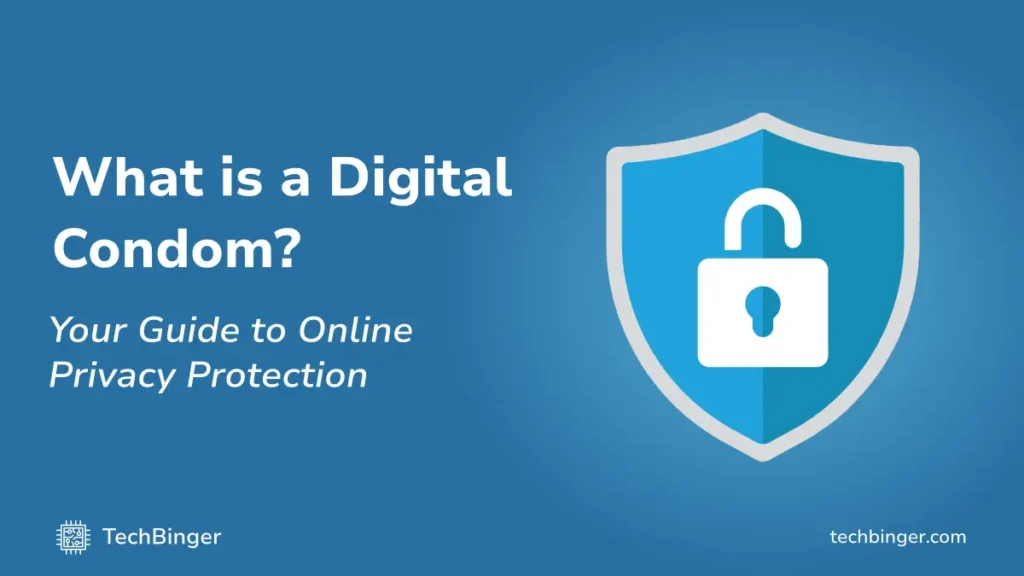In a world where we’re constantly connected, keeping our digital lives private is more important than ever. From public Wi-Fi to online scams, threats to our personal information seem to lurk around every corner. That’s where the concept of a “digital condom” comes in—an easy-to-understand metaphor for tools and practices that keep your online data safe and secure.

What Does “Digital Condom” Mean?
Think of a digital condom as a protective barrier for your online presence. It isn’t a physical object but represents various digital tools and habits designed to shield your personal information from hackers, malware, and other threats.
For instance:
- VPNs (Virtual Private Networks) encrypt your internet activity, keeping prying eyes away.
- Secure USB adapters block malicious data transfers when using public charging stations.
- Antivirus software detects and stops harmful programs before they cause trouble.
These tools act like digital safeguards, ensuring you can browse, shop, and communicate online without unnecessary risks.
Why You Need a Digital Condom
Cybersecurity threats are everywhere, and many of us don’t realize how vulnerable we are until it’s too late. Here are a few scenarios where a digital condom could save you from trouble:
- Using Public Wi-Fi
Free Wi-Fi is tempting, but it’s often insecure. Hackers can intercept your data, from passwords to financial information. A VPN encrypts your connection, keeping your activity private. - Charging in Public Places
Ever plugged your phone into a public charging station? It could be a trap! Hackers use these stations to steal your data, a practice called “juice jacking.” Secure USB adapters prevent data transfer, allowing only charging. - Avoiding Phishing Scams
Phishing emails or fake websites trick people into sharing sensitive info. Antivirus software and browser security tools can detect and block these threats.
Tools That Serve as Digital Condoms
Let’s break down some of the best tools that act as digital condoms:
- VPNs (Virtual Private Networks)
A VPN encrypts your online activities and hides your IP address. Whether you’re working remotely or streaming, a VPN like NordVPN or ExpressVPN is a must-have. - Antivirus Software
Programs like McAfee and Norton actively protect your devices from malware and viruses. Think of them as your first line of defense. - Secure USB Adapters
Products like SyncStop ensure your phone only charges, blocking potential data theft at public charging points. - Two-Factor Authentication (2FA)
By adding a second verification step, like a text code or fingerprint scan, 2FA makes it harder for hackers to access your accounts.
How to Stay Protected
Here’s how to incorporate digital safety into your everyday life:
- Use Strong Passwords: Make them long and unique, and consider using a password manager.
- Enable 2FA: Always opt for an extra layer of security when possible.
- Keep Software Updated: Outdated apps can leave your devices vulnerable.
- Be Cautious Online: Avoid clicking on suspicious links or downloading files from unknown sources.
Also Read: Top 5 Digital Condoms to Protect Your Online Privacy in 2025.
Looking Ahead: The Future of Digital Condoms
As technology evolves, so will the ways we protect ourselves. AI-powered cybersecurity tools and biometric authentication are paving the way for smarter, more intuitive digital protection. These innovations promise to make staying safe online even easier in the years to come.
Final Thoughts
While the term “digital condom” might sound playful, its purpose is serious. With simple tools and good online habits, you can protect your privacy and enjoy the digital world with confidence. Don’t wait until something goes wrong—start taking your online safety seriously today.
Leave a Reply
You must be logged in to post a comment.